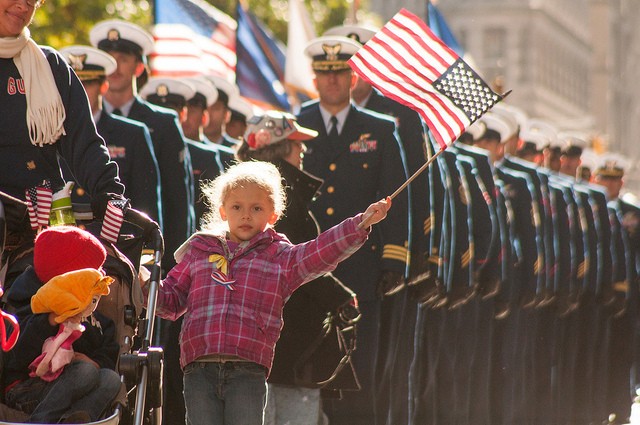 DVIDSHUB – Flickr
DVIDSHUB – Flickr
As American holidays go, Veterans Day is right up there with Christmas, Thanksgiving, Easter, and Passover on the reverence scale. Though it lacks the same kind of religious content and is probably more solemn than celebratory, the annual November 11th homage to the men and women who have served in our armed forces commands universal respect, across all demographic lines.
It was originally known as Armistice Day, for the obvious reason that, when proclaimed by President Woodrow Wilson in 1919, it commemorated the end of hostilities, one year earlier, of what was then known as the Great War. Wilson’s proclamation cited America’s “solemn pride in the heroism of those who died in the country’s service,” and its “gratitude for the victory,” but hailed above all “the opportunity … given America to show her sympathy with peace and justice in the councils of the nations.”
There is a less ennobling and not very well-known fact about the calendar date on which the armistice was signed between the Allies and the Central Powers (as the two contending sides were then known). Germany, as the most important and last active combatant of the latter group of nations, had been signaling for days its wish to surrender the fight, but the Allied military leaders chose to delay armistice proceedings for the pure symbolism of ending things on the 11th hour of the 11th day of the 11th month. In a savage war which had bled dry every European country involved, costing the lives of millions, the few thousands who perished during the waiting period apparently counted for less than the ceremonial symmetry of the date.
Even so, November 11th engendered a sense of uplift during its annual observances, though the mission of “the war to end wars” was obliterated by the even bloodier renewal of struggle 20 years later that caused the conflicts to be known thenceforth as World Wars One and Two. That fact, and perhaps the outbreak of the Korean War in 1950 and other continuing conflicts worldwide, persuaded Congress to rename the holiday Veterans Day.
Still, that concluding phrase of President Wilson’s proclamation, raising the hope of “peace and justice in the councils of the nations,” continues to resonate as a feature of the holiday. And, in that sense, it was more than appropriate that, on the very eve of this week’s commemoration, Israeli Prime Minister Benjamin Netanyahu came to Washington on a mission of reconciliation with President Barack Obama. The intent was to smooth over the jarring discord between the two leaders over the recent agreement reached by Obama and various European leaders with Iran, intended to keep the latter country free of nuclear weapons but regarded by the Israeli leader as too soft.
Obama and Netanyahu formally pledged their continued search for peace in the Middle East through a two-state solution in Palestine. Maybe that’s more rhetoric than reality, but it keeps hope alive, the same hope Wilson sought to express in his formulation of reasons for the holiday.